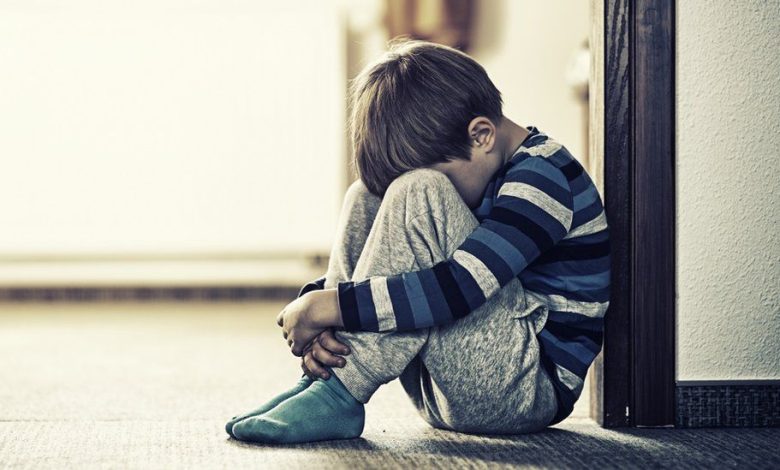Illuminating Injustice: Investigations into Legal Failures Enabling Child Sexual Abuse in Iran

The Global Tragedy of Child Sexual Abuse
Child sexual abuse remains one of humanity’s most egregious and persistent afflictions, imposing unthinkable trauma that can debilitate victims for lifetimes. This global crisis festers in silence, cloaking victims in invisibility and allowing perpetrators to evade accountability. While no society is immune, addressing child sexual abuse in Islamic countries is acutely complex due to cultural taboos regarding sexuality. Yet we must summon the courage to confront this issue with openness, wisdom and moral conviction. The dignity and futures of our children depend on it.
fieldwork Research inside of Iran
Where silence prevails, rigorous empirical research brings light. Through extensive mixed-methods fieldwork over decades, social anthropologist Kameel Ahmad and his colleagues emerged as a researcher piercing Taboo and secrecy: a study on child sexual abuse with an emphasis on adultery in Iran the veil of secrecy shrouding child sexual abuse in Iran and the Islamic region more broadly. Via legal analysis, surveys, in-depth interviews and ethnographic observation, the study investigations yield illuminating data and insights where ignorance breeds immeasurable suffering. Kameel’s website stands as an open-access hub containing findings from essential scholarship – providing a foundation for advocacy, education and reform.
Probing Beneath the Surface: Legal Frameworks and Barriers to Justice
While Iranian law expressly prohibits child sexual abuse on paper, this research reveals a more sobering reality confronting victims seeking justice. Meticulous case studies expose systemic flaws and cultural barriers deterring abused children from availing legal protection or reporting crimes. Despite mandates, over 90% of sexually abused children never come forward due to taboos surrounding sexuality (Ahmady, 2023). Through firsthand accounts, the research documents the guilt and shame inflicted on victims – especially males – that discourages disclosure. Beneath the surface, he exposes a torturous legal labyrinth where most cases never reach court, abandoned mid-prosecution. Impunity prevails.
Spotlighting Legal Failures on Child Marriage
Critically, this research highlights how Iran’s legal accommodation of child marriage creates conditions enabling sexual abuse. By allowing girls as young as 13 to marry with parental approval, the law fails to recognize the coercive circumstances producing child marriages and the risks of spousal abuse. As the documents reveal, families may force daughters into marriages to older men as “protection,” inadvertently facilitating statutory rape (Ahmady et al., 2016). Reforms establishing 18 as the minimum marriage age are essential.
Elucidating Risk Factors Across Ecological Levels
To inform prevention-centered reforms, the sudy elucidates risk factors for abuse operating at societal, community, family, and individual levels. Broadly, he highlights socio-cultural taboos regarding sexuality, gender inequality, poverty, and problematic religious interpretations as underlying drivers. More locally, factors include poor legal framework implementation, lack of youth sex education, limited counseling services, and familial conflicts. Ahmady advocates adopting ecological models examining how these multilayered forces interact to produce vulnerability.
The Devastating Impacts on Survivors
Through firsthand testimonies, the sudy documents the diverse yet pervasive impacts of abuse on survivors’ wellbeing in Iran. These span depression, anxiety, PTSD, self-harm, unwanted pregnancy, suicide, delinquency, and revictimization from incest, among other effects. The trauma inflicted can be prolonged, even lifelong. Further prospective research tracking long-term outcomes is essential to fully convey consequences and inform support.
A Roadmap for Change: Recommendations and Reflections
Critically it outlines tailored recommendations for reforms in Iran spanning public awareness campaigns, professional training, school-based prevention programs, legal reforms, reporting mechanisms and trauma-informed therapies. The sudy reflects on promising developments like organizations providing counseling, while noting persisting cultural taboos that keep many blind to victims’ suffering. Sustained efforts and open discussion are vital to progress.
Implications for the Wider Islamic World
While centered in Iran, this research revelations have resonance for understanding and addressing the scourge of child sexual abuse across Islamic countries. Similar sociocultural dynamics regarding sexuality, gender and family honor likely contribute to underreporting and hidden abuse throughout the region. Tailored yet coordinated reform efforts are needed across the Islamic world to uphold child safety and wellbeing.
The Need for More Research on Scope, Drivers and Interventions
Reliable prevalence data on child sexual abuse remains lacking for Iran and Islamic countries more broadly. Further representative studies are needed, though methodological and ethical challenges abound. Moreover, research identifying context-specific abuse drivers and piloting preventative interventions would provide an invaluable knowledge base to guide policy reforms. Building research capacity and sharing insights across the Islamic world will accelerate progress.
Knowledge Dispels Darkness: Research as a Clarion Call to Action
In the end, the research dispels lethal ignorance by revealing difficult truths in a spirit of humility, compassion and rigorous objectivity. Such knowledge shapes understanding and awakens conscience, providing an empirical compass to guide collective action. By illuminating legal gaps, surfacing culturally rooted barriers, and mapping a prevention-centered path ahead, this research issues an urgent yet hopeful clarion call. With moral courage, openness and peer collaboration, Islamic countries can rise to meet this challenge.
References
Ahmady, K., et al. (2016). Echo of Silence: Comprehensive Research on Early Marriage of Children in Iran. Shirazeh Publishing.
Ahmady, K., et al. (2023). Taboo and secrecy: a study on child sexual abuse with an emphasis on adultery in Iran. Avaye Buf.



